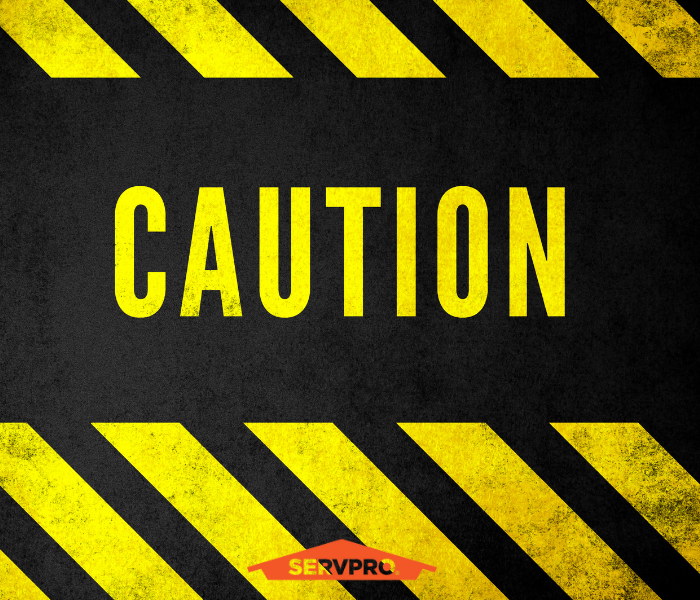Gas Leaks and Fire!
2/14/2022 (Permalink)
The Signs Of A Gas Leak
They are sometimes hard to recognize, but it doesn't take much of a leak to cause a gas fire. These disasters are all too common.
Fortunately, you can avoid a fire or worse by recognizing signs of a leak:
- A hissing or whistling sound near the line
- The smell of rotten eggs or sulfur
- Bubbles in the water
- Dead indoor plants
- Visible dust near the gas line
- Damage to the gas pipe
People or pets may show signs of a natural gas leak, as well!
These may include nosebleeds, reduced appetites, nausea, mood changes, irritation to the eyes and throats, disorientation, and breathing difficulties.
How to Stay Safe:
Avoid a gas fire or explosion by following these top tips:
1. Check Gas Stoves
If you have a gas stove, the dials may have been turned on or left on accidentally. If you're confident it's safe to remain in your home, move to the stove and turn off any flames.
2. Do Not Flip Switches
Simply flipping the light switch to on or off could make a spark that causes a gas explosion. Instead, use a flashlight for any other actions you take in the house. Don't use the phone inside the house, either. In fact, don't use lighters, candles, or anything else that could ignite.
3. Ventilate the Home
Open all the windows and doors, so fresh air can come in and gas will move out of the house. Don't worry about taking any steps further than this. Instead, wait to contact emergency or fire remediation professionals when you and your family are safely outside.
4. Go Outside
Get everyone outside and go across the street. From this safe distance, call 911 or the appropriate authorities.
Learn as much as you can about what may cause a gas fire and how to avoid them to keep your family safe. Teach your family about natural gas and how to stay safe if they suspect a gas leak. Click the following link for more fire safety tips.
It is highly flammable, and gas leaks increase the risk of fire and explosion. If people suspect a gas leak, it is essential that they evacuate the area immediately, and call 911, the local fire department, or the utility company's emergency line.




 24/7 Emergency Service
24/7 Emergency Service
